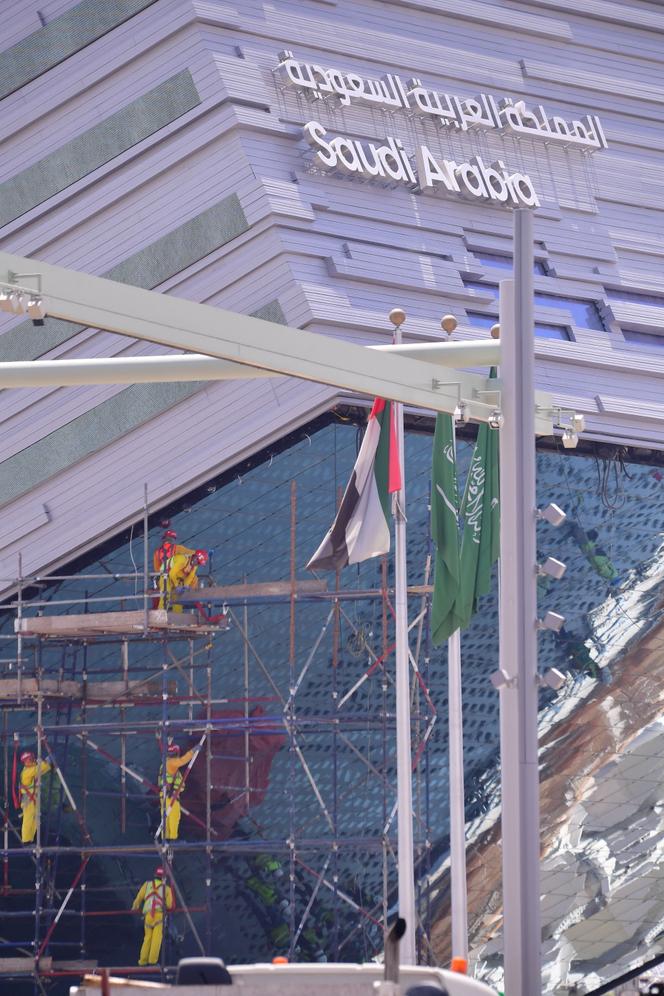


Work in 42°C (107°F) heat and under a sweltering sun, for the world's states to meet at the largest annual summit on the fight against global warming. An investigation by the British NGO FairSquare, published on October 20, revealed that migrant workers from Africa and South Asia reportedly worked in the early September heat renovating the Expo City buildings in the most populous city in the United Arab Emirates.
Those are the premises that will host heads of state, representatives, and the media during the COP28 summit, from November 30 to December 12, the first conference to devote an entire day to the impact of climate change on health. "They have to start close to home, where migrant workers have been preparing the Expo City site in temperatures that tourists faint in," said James Lynch, founder and co-director of the NGO.
According to testimonies obtained by researchers, as well as visual evidence authenticated by Le Monde, between 20 and 30 workers were toiling, carrying heavy loads in extreme heat and high humidity during the "midday ban" – a UAE law banning outdoor work during the hottest hours (12:30 PM until 3 PM) from June 15 to September 15. The evidence put forward by FairSquare showed that this rule has been breached, despite genuine risks to workers' health.
"The risks of working in extreme heat can be short- or long-term," said Barrak Alahmad, a researcher in the Department of Environmental Health at Harvard University (USA), who has studied environmental effects on the health of migrant workers in Kuwait. "There are risks of heart failure, heart attacks, and potentially fatal heatstroke, but also kidney problems, with some workers ending up on dialysis a few years later."
The researcher also points to the risk of workplace accidents, which he deems "less taken into account" given that under the pressure of temperature, mental faculties can be impaired, leading to serious accidents. "Above 40 degrees, the risk of having a serious accident at work increases by 20% compared to the average summer temperature, which is 27 degrees." Critical of the mid-day ban policy, Alahmad added: "Who says a body can't suffer from the heat at 10 in the morning? This type of policy is in no way based on science, which doesn't reason in terms of timetables." In the Gulf region, temperatures can exceed 40 degrees between 100 and 150 days a year.
Workers described in testimonials collected by FairSquare, how, to finish the facilities by the end of November, they had to ignore the risks despite the pain. " Last week, I thought I would die every second we were outside… but we have to get paid," said one. Another worker said: " Of course, I get headaches and feel dizzy. Everyone in this heat does. This weather isn’t for humans, I think." "COP28 is only a few weeks away. Most of the work is done in the evenings, but some must be done at every possible moment. We're running out of time, we must finish," a worker concluded.
You have 35% of this article left to read. The rest is for subscribers only.
